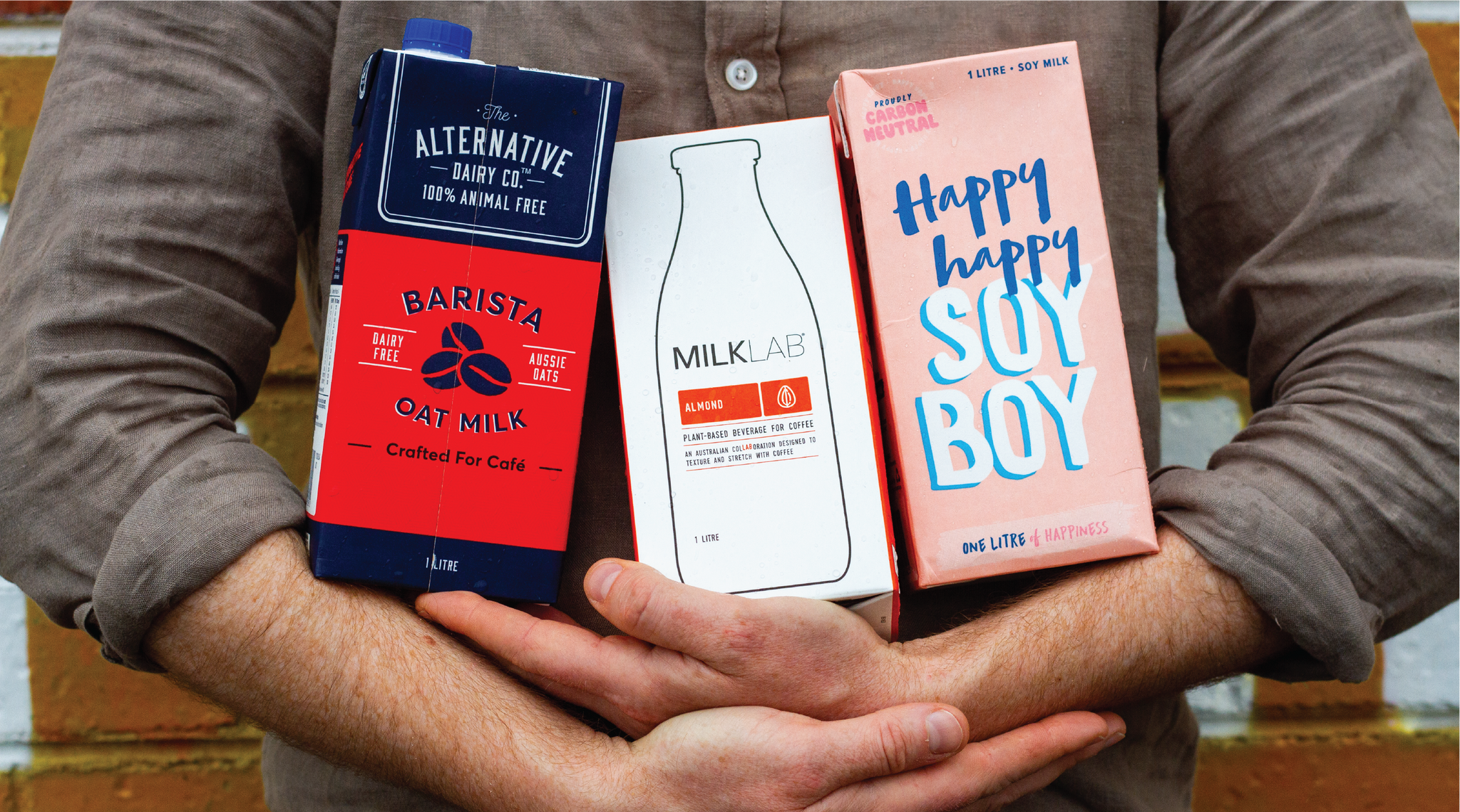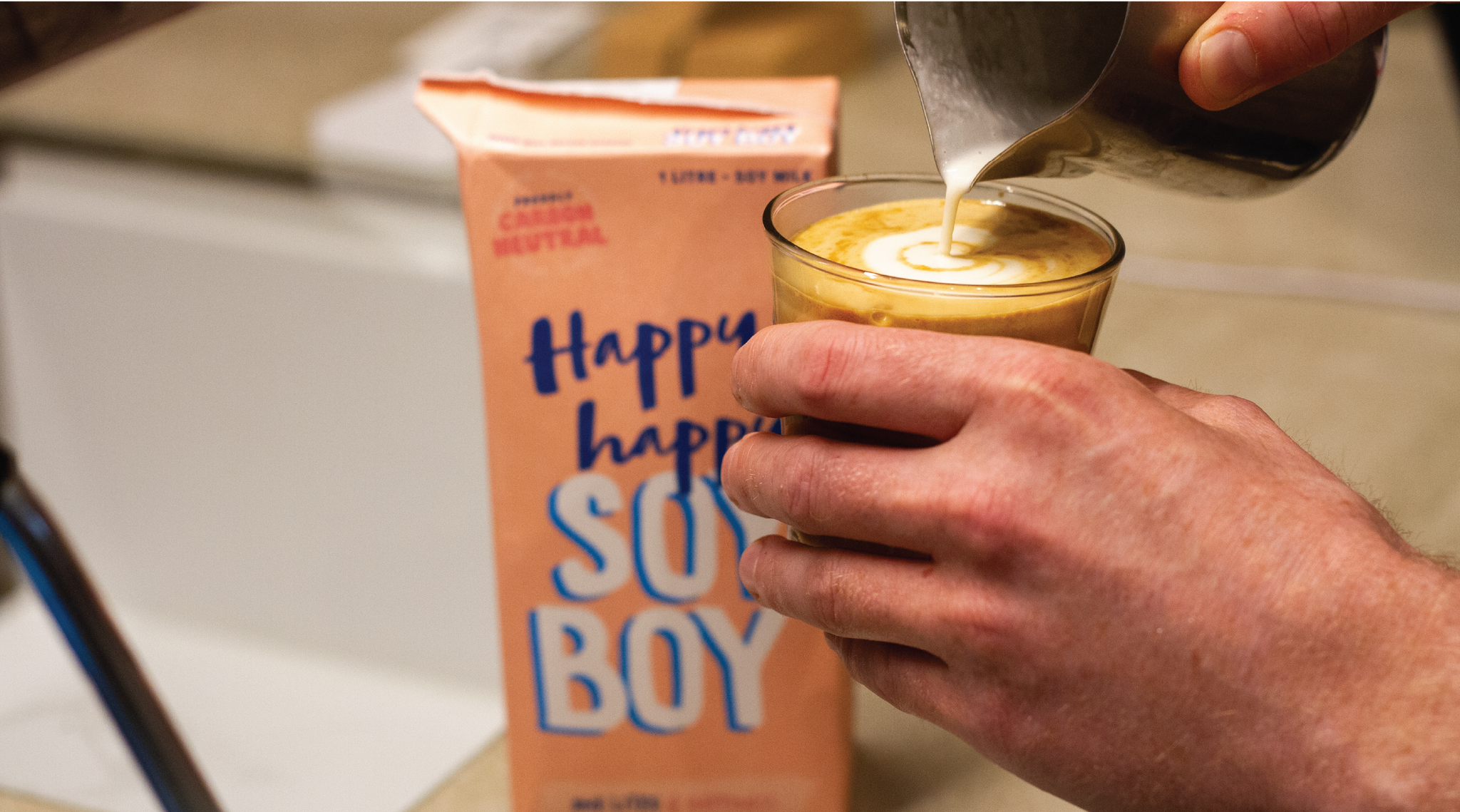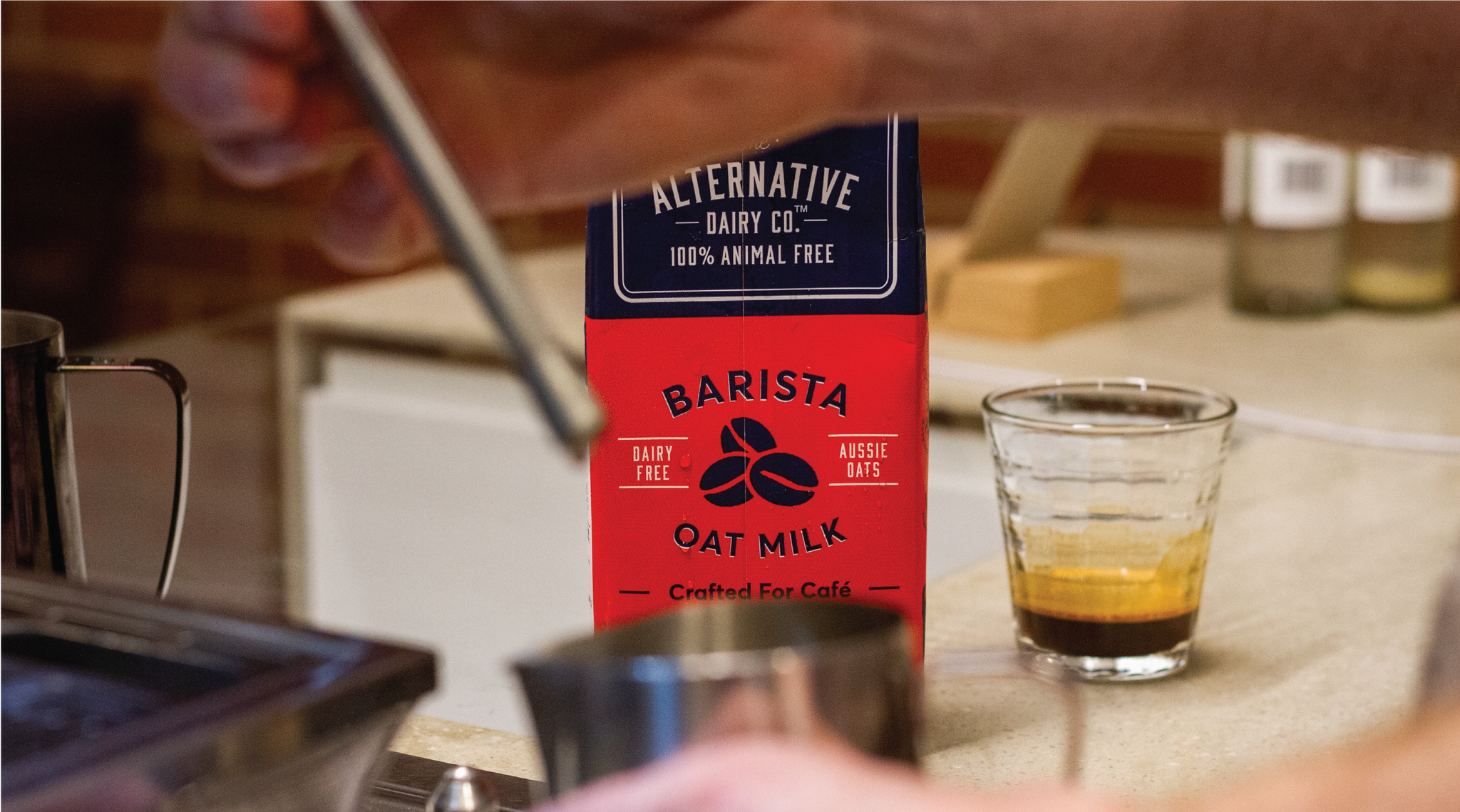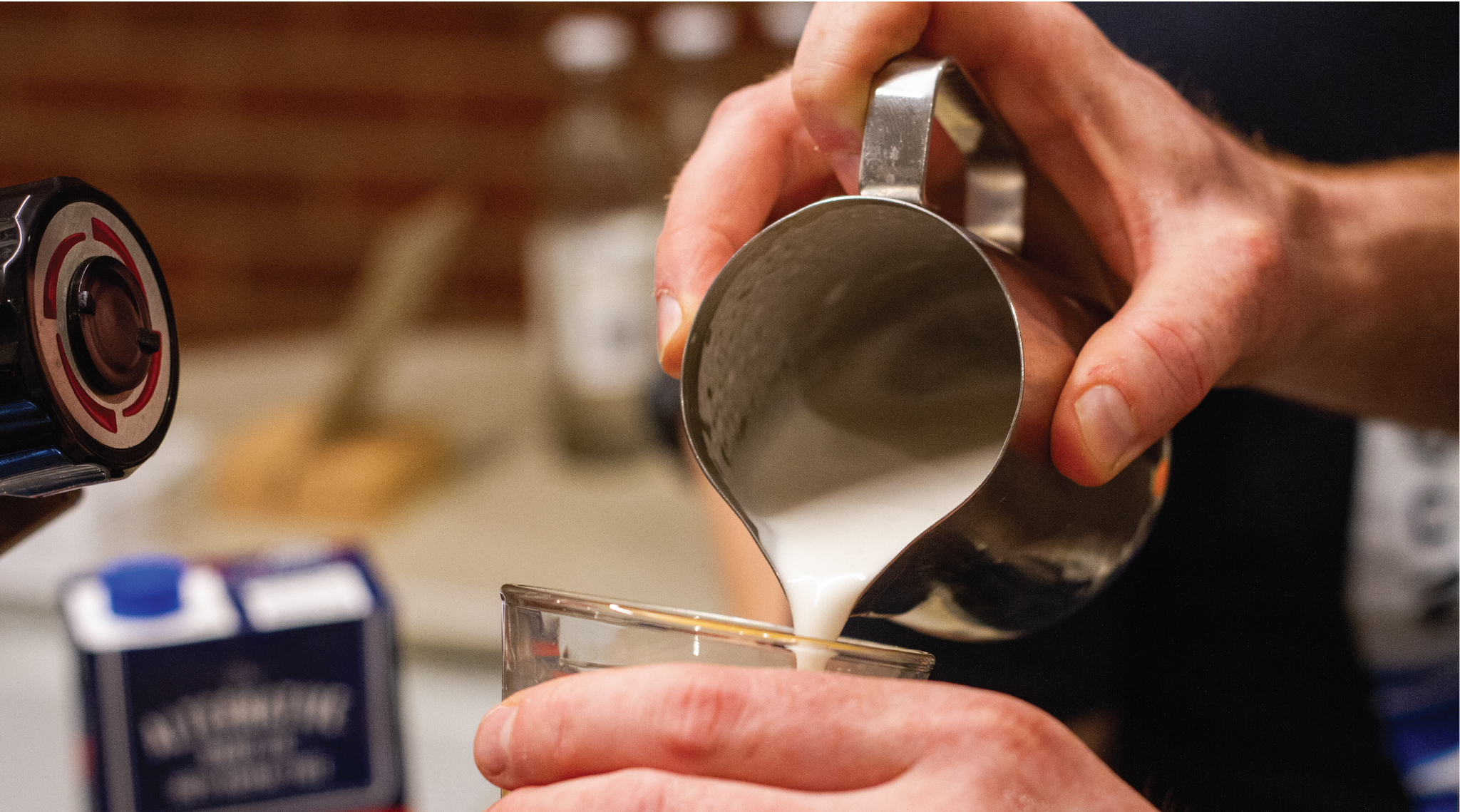
What’s the Best Alternative Milk for Coffee?
What’s the Best Alternative Milk for Coffee?
Summary
- Alt milks are delicious but don't always steam or behave the same as dairy.
- Find the milk that suits you best and learn how to steam it well.
- Just looking for the best coffee to use with your Alt Milks? We recommend Shadow Boxer as it's our darkest roast with the lowest acidity. You can buy it here.
For a while now the realm of alternative milk has been serious business. Coffee drinkers want options when it comes to the milk they drink with their coffee, hot chocolate, matcha… you name it.
While the choice can come down to dietary requirements whether to have dairy or non-dairy alternative, what milk alternatives people choose isn’t always set in stone. When people do make the leap to an alternative milk they often aren’t sure what’s good in the cup or what the best option is, so let’s take a deep dive into the most common dairy-free milks; what they are like to work with, and most importantly what they taste like.

The choices
Alt Milk drinkers rejoice, the range and quality available has never been greater, and the last few years have seen a great range of alternative milks at your local supermarket. For the last few decades, Soy has been the staple for non-dairy milk, but in the last 10 years, we’ve seen the popularity of Oat and Almond grow exponentially, not just as an alternative to diary, but desirable in their own right.
We won’t look at specific brands in this article but it’s good to know that there are brands that are specifically designed to be stretched by using additives like protein that help get a creamy texture and in the development of foam to mimic the milk taste. This can be a good thing to know when choosing a milk substitute for your café.
That being said here’s the plant-based milks we’ll look at:
-
Soy milk
-
Almond milk
-
Oat milk
-
Coconut milk
-
Rice milk
-
Hemp milk
-
Cashew milk
-
Macadamia milk
-
Pea milk
-
Hazelnut milk
We know there are more milk alternatives but we’ll start with these.
Soy milk
The most common milk substitute has been around for a long time now, and for many years, it was the only option for people looking at a diary free alternative. Baristas generally know what working with soy entails but it’s good to refresh our memories.

Flavour: Soy milk has a delicious nuttiness and steams a good-looking, smooth froth. When making a coffee or hot chocolate it’s great and can add a little bit of nut flavour that makes the drinks sing. It also has a nice texture that mimics dairy.
However… when making coffee it can be a little tough. Soy does not like to mix with coffee, especially a lightly roasted bean. As soon as it hits the coffee it starts to curdle even when making an iced coffee. A good tip is to pour fast, in the beginning, to break the clumps then do what you can for latte art for a hot coffee, and use a darker roasted coffee to compliment the nutty flavours. In our case, our Shadow Boxer blend works best with soy.
Rumble Barista Rating: 3
Almond milk
Entering the coffee industry a little later than soy milk, almond milk as a dairy alternative has come a long way. Coffee drinkers have embraced this when avoiding cow's milk and in some cafés it outsells soy on the daily.
Flavour: Not surprisingly almond milk does add a light nutty flavour to your drinks. It has a nice texture and doesn’t get in the way of the coffee flavour too much.
Almond milk like soy milk does curdle a little but not nearly as much as soy. It may need a little more stretching than dairy, but not much, and latte art is relatively easy when pouring.
New Barista Specific Almond milks have hit the shelves in the last few years, specially formulated to steam and foam like regular dairy milk making it great for latte art.
Rumble Barista Rating: 3.5
Oat milk
Oat milk has really come into the café scene with gusto and is becoming one of the best milk alternatives. Coffee drinkers and baristas alike enjoy tasting and working with this alt non-dairy milk.
Flavour: Oat milk really doesn’t add too much flavour to your drinks and lets the coffee do the talking flavour-wise. It doesn’t quite have the velvety texture of dairy but it’s not far off.
Steaming and pouring oat milk is a dream. Again it might require a little more stretching but there is no curdling and latte art is a breeze. That’s why coffee professionals love it.
Oat milk is one of the most sustainable options on the list too, requiring water to produce than Almond Milk and 80% less greenhouse gas emissions than cow’s milk.
Rumble Barista Rating: 4

Coconut milk
Far less common than the first three coconut milk can be found in some café but don’t expect to get it everywhere.
Flavour: This varies greatly across brands. Some have a very weak flavour that isn’t very noticeable while others can affect the flavour of whatever you’re making. Texture too can vary but generally is very watery and not great.
Working with this alt milk is tough. You won’t get a lot of froth for the most part so just do what you can if you use it. Even better just drink it on its own, yum!
Rumble Barista Rating: 1
Rice milk
Again you won’t find rice milk in a lot of cafés but there are some that stock it. People like it because obviously, it’s dairy-, nut- and soy-free.
Flavour: Rice milk has a rather neutral taste so the coffee can really shine here. Texture wise it’s not great, quite watery it won’t give you the delicious mouth feel you get from dairy or other alternative milks.
Working with rice milk is tough as it just doesn’t create a lot of foam when steamed. You may find with some brands you get a little but don’t beat yourself up if most if not all of your hot milk coffees are flat.
Rumble Barista Rating: 2
Hemp milk
A new alternative milk, this is a very interesting one.
Flavour: Inert really. Not much flavour to speak of it does come across as quite sweet. It has a creamy texture when cold but thins out when steamed. We found it tends to make a milk drink taste a little bitter but also sweet.
It’s not great to work with as it creates rather large bubbles and doesn’t really get the micro-foam we are after but pouring latte art wasn’t too hard to achieve.
Rumble Barista Rating 2.5
Cashew milk
Not common at all this nondairy milk isn’t making splashes yet.
Flavour: Not a strong flavour, it doesn’t impact the coffee too much and has a fairly good creaminess.
Working with cashew milk isn’t so easy though, while you can stretch it the bubbles stay big and don't give you that smooth texture.
Macadamia milk
Again not common but readily available and pretty pricey.
Flavour: Not a huge amount of flavour which is good but it does bring the creaminess. Similar to almond milk it gives a pretty good texture.
Working with it is OK but again not terrific. Perhaps with a bit more establishment, more formulas could come through but it’s not there yet.
Pea milk
A wide range of options: some work with coffee and others really don’t so do some research before you choose one.
Flavour: Nothing much to speak of which is good for the coffee flavour and the texture isn’t bad but not quite up to scratch with say an oat milk.
Pea milk can work well when in terms of texturing and pouring but again it depends on the brand so choose wisely.
Hazelnut milk
Finally, we have hazelnut milk. Definitely a lesser-used plant-based milk you won't find it in many coffee shops.
Flavour: Hazelnut milk does bring the flavour. Pair it with a chocolatey blend and you might find yourself thinking of Nutella. But, it does leave a bitter aftertaste when mixed with coffee and doesn't have the best creamy texture.
In terms of working with it does like to separate. In terms of texturing it isn't flash either. This is one that the brand you choose has a big effect.
Alternatively, have you tried black coffee?
OK, it's a little cheeky but if you’ve got a good black espresso or filter coffee push it! If someone doesn’t know what alternative milk they want they might not know you have some killer filter or single-origin coffees on offer. Also black coffee has 0 calories FYI.
What's the best option?

This is a choice for you and your customers but for us, oat is the winner. Good taste, good texture and great to work with. It stands out from the rest while letting your coffee do the talking. So for us, it's the best option for sure.
Summing up
The non-dairy milk alternatives your customers choose will always be up to them and what they enjoy. This means they will guide the alt milks you have in stock. Getting this balance right can be tough as having lots of plant-based alternatives might sound nice but can cause chaos in terms of workflow. Also, if you stock and alt milk only for one customer there could be a lot of wastage.
Finally, there are lots of options out there for plant-based milk alternatives and there’ll be plenty of people out to sell you their brand. Do tests and figure out what you like but also listen to your customers. Feedback is a great way to help you choose the best option.
